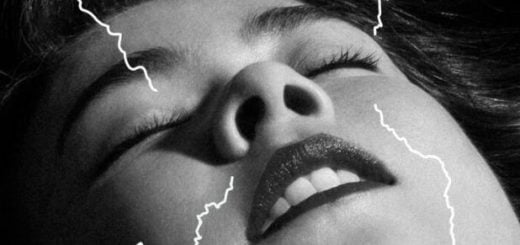Shame by Mitski Lyrics Meaning – Unraveling the Intricacies of Intrigue and Intimacy
Lyrics
It feels so good
And right outside the door nobody knows
They’re right outside the door and they don’t know how it
Feels so good
It feels so good
I never was very good
I haven’t been so good
But right outside the door nobody knows
They’re right outside the door and they don’t know how it
Feels so good
It feels so good
And I don’t need anything other than you.
In the often cryptic universe of Mitski’s lyrical prowess, ‘Shame’ emerges as a hauntingly brief yet dense piece that transcends the raw edges of emotion. It is a track that doesn’t inflate its presence with lengthy verses or an intricate chorus, but rather through its repetitive simplicity, it pierces the veil of the unsaid and unexplored facets of emotional intimacy and personal reckoning.
Mitski, known for her ability to resonate with the depths of the human condition, once again proves herself as an architect of empathy. ‘Shame’ becomes a canvas of minimalistic poetry, leaving listeners to navigate the spaces between the lines, where the weight of shame and the allure of secret pleasure collide.
The Euphoria of Forbidden Pleasure
The repetition of ‘It feels so good’ is a hypnotic mantra that encapsulates the song’s essence – the intoxication of an act deemed immoral or forbidden. Mitski doesn’t delve into the specifics, leaving the act to imagination, thus granting universality to the sensation: the shame we find in our shared, clandestine joys.
The lyrics don’t champion or condemn; rather, they simply state a fact – the duality of pain and pleasure that often accompanies our most guarded secrets. The stark contrast of public perception versus private fulfillment is drawn sharply here, encapsulated in the divide between what is outside the door and what transpires within.
The Struggle Within the Silence
By choosing not to expand beyond the refrain, ‘Shame’ mirrors our hesitation to divulge the complexity of our own feelings. Mitski’s lyrical brevity echoes the internal battles fought silently, as the acknowledgment of joy is immediately followed by the recognition of its secretive nature.
The song doesn’t just speak; it listens. It’s a nod to internal dialogues that never cross our lips, reinforcing the theme that some parts of the human experience are so potent that they elude expression and remain confined within the realm of visceral, unspoken truth.
The Dissonance of Self-Perception
The lyrics ‘I never was very good, I haven’t been so good’ invoke an immediate sense of self-judgment, tapping into our innate tendency to measure ourselves against moral barometers. Mitski’s voice carries a nuanced mixture of resignation and self-awareness, which tempts listeners to confront their own worthiness and personal shortcomings.
In the span of two lines, Mitski encapsulates a broader reflection on human behavior – the struggle between our principled ideals and carnal desires, and the complex emotions that surface when we perceive ourselves as falling short of the former.
A Song’s Hidden Layers Unveiled
Beyond the lyrical cadence and the corners of audible confessions, lies an unspoken depth in ‘Shame’. Its hidden meaning may just be the reflection of its audience, as each listener extrapolates their narratives anchored by their shame and secrets, a mirror held up not to show us who we are, but who we might be in those hidden moments.
Mitski harnesses the power of space—the brevity serves not as a limitation but as an expansion, inviting us to fill in the blanks, reading between the hum of the melody and the silence that follows. The song’s true magic lies in the echoing thoughts it leaves lingering in the listener’s mind, long after the music fades.
Echoes of the Memorable: Lyrical Imprints
Amongst the sparse lyrics, the line ‘And I don’t need anything other than you’ stands out, an aching declaration of dependency and desire that captures the central paradox of ‘Shame’. Here Mitski distills intimacy to its core, uniting the need for the other with the insidious feeling of shame felt in seeking that very connection.
This line represents a bare admission of vulnerability, which juxtaposed with the preceding admissions of shame, paints a portrait of human longing that is unnervingly relatable. It leaves a memorable imprint, a signature of Mitski’s ability to convey a vast emotional landscape within a single breath.








